Early in the week, a red-phase screech owl came in after having been held illegally since July. Although the finders indicated a foot injury, when the bird arrived at LWR both feet turned out to be fully functional, although his feathers are a mess. More on him later, but first let me hop on my soapbox for a minute or two.
I’m not even gonna get into the full rant about the public keeping birds illegally; you’ve heard it all before. What I will do is remind y’all that rehabbers don’t get paid for what we do; we are not salaried employees of DNR or FWS. Most of us have actual jobs to pay our bills. And yet there seems to be a widely shared opinion that we should drop everything we’re doing, including our PAYING jobs, to drive all over the state to pick up the wildlife the public finds. News flash, people: Georgia’s a big ol’ state and there aren’t many of us out there who’re properly permitted. We can’t abandon the wildlife currently in our care to drive up to 4-6 hours round-trip to pick up wildlife, and even if we could, we can’t just stop working to do so. And even if we could leave behind those other animals in our care and stop working for up to half a day, we still need MONEY for gas to pick up the wildlife and then to feed it. Less than 6% of the people who bring us wildlife in a given year donate toward its continued care, and of those <6% who do donate, it’s most often in the range of $25 to $50, and quite frequently not that much—and I can promise you that doesn’t come close to covering care for even one week in rehab for one bird. But no rehabber denies care because a finder can’t pay; that’s not how this undertaking operates.
Further, there are myriads of “armchair quarterbacks” out there who think they have the right to denigrate, attack and threaten us because we refuse to become homeless in order to pick up wildlife, and we utilize our colleagues at DNR and FWS to confiscate and transport for us when the need arises, particularly when a caller indicates they’ve had the wildlife for weeks or months. By the terms of our permits, we’re required to report illegal activity—and keeping wildlife long-term without a permit is illegal on both the state and federal levels; further, when DNR or FWS confiscates illegally held wildlife, they have the legal right to euthanize on the spot. It is only their close working relationship with rehabbers that prevents this. On a personal level, I can promise you your “hurted feewins” are less important to me than the permits I worked so hard to obtain and maintain and the trust that DNR and FWS people have in me.
My very “favorites,” though, are the sanctimonious types who are “horrified, I tell you, horrified!” that rehabbers dare to euthanize wildlife if its injuries preclude release. Again, speaking personally, I’m up-front about that possibility on the LWR website. From a purely HUMANE point of view, if the bird’s injuries would mean a life of discomfort, yes, I euthanize. If the bird could survive and potentially be used as an educational bird, I, my vets, and at least one other rehabber evaluate the bird’s overall personality to determine if it’s suited for ed bird status. Some birds are too stressed by human contact and captivity to ever make good ed birds; euthanasia is a kinder option. Humane issues aside, LEGALLY, by the terms of our permits, rehabbers are required to euthanize nonreleasable wildlife that cannot be placed or function as ed animals. So again, I will not be inhumane enough to sentence an unhappy/pain-filled bird to a life in captivity, nor will I break the law to allow the public to get the warm fuzzies.
Nature is cruel. Wildlife often comes into rehab in such condition that we cannot save it, or if we did, it would be inhumane to that wildlife to do so. If the ONLY release I can offer the birds who come into my care at LWR is a release from suffering, I will give them that release. And I can promise you any rehabber worth his/her salt will tell you the same thing. It never gets easier, even when you know it’s the right decision. It hurts, every single time. But it is THE RIGHT, THE LEGAL AND THE HUMANE course of action when it’s the only means of ending suffering. If you’ve never had to make that decision on a regular basis, don’t you DARE criticize rehabbers for making those tough calls.
Hopping off the soapbox now, we return to the illegally held screech. As I said, his feathers are a mess and he’s very paranoid, more so than is normal for a screech. Due to the threat of bad weather from Hurricane Ian, he’s been kept inside all week but tomorrow he’ll be moved to the mini-pen to see how he does. If the feather damage isn’t too severe and he can be flight conditioned fairly quickly, he’ll be released ASAP. My fear is that he may need to remain in care until he molts—not ideal for an already-stressed bird, but in the mini-pen we can minimize human contact and hopefully lessen the majority of his stress. We’ll see...
Here he is on intake:
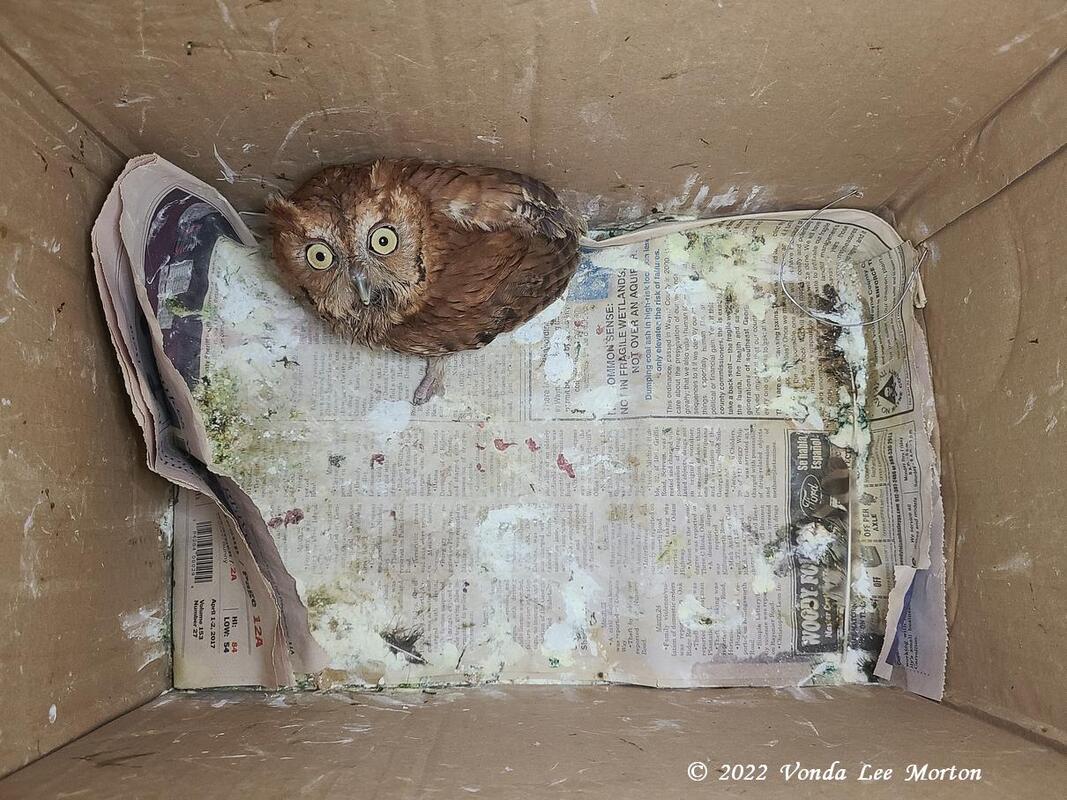
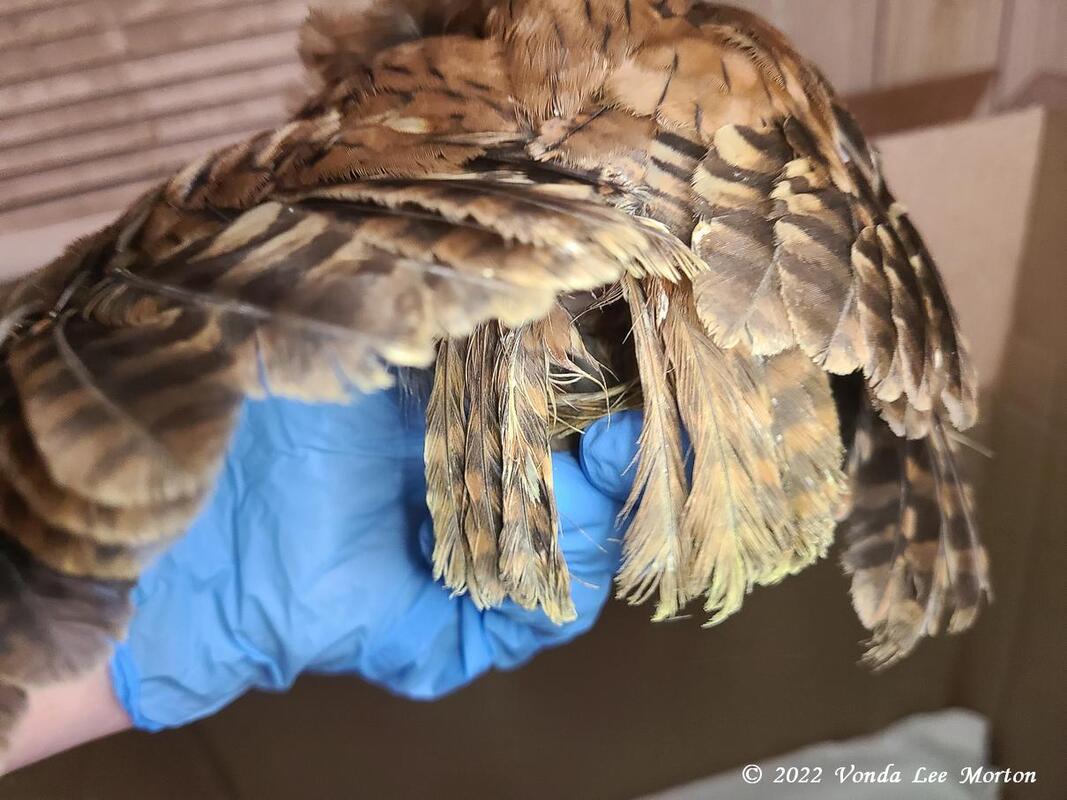
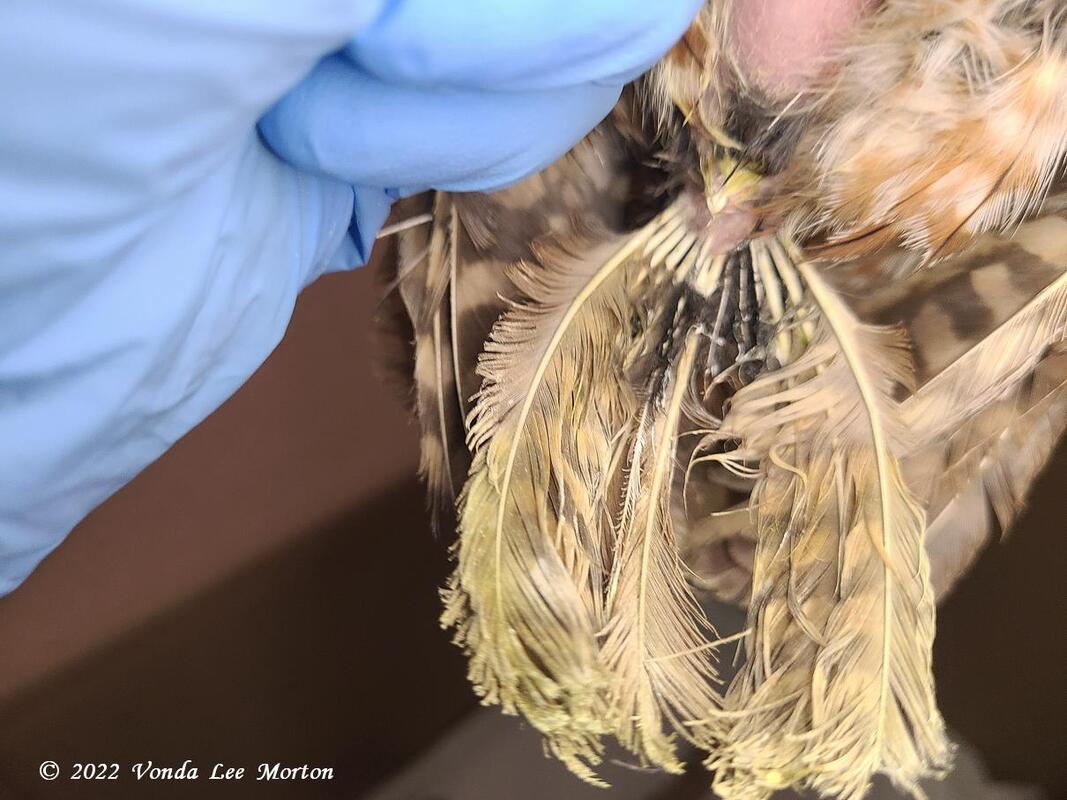
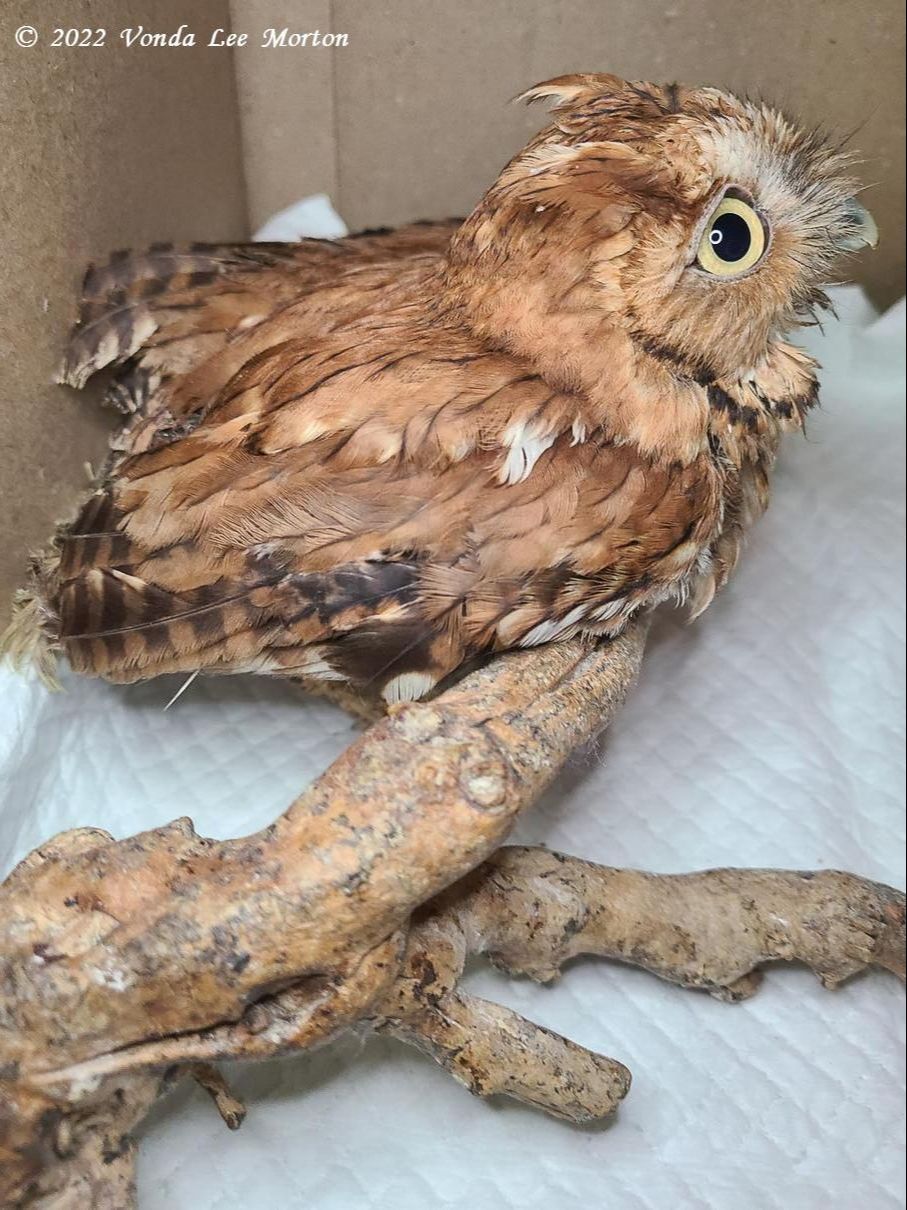
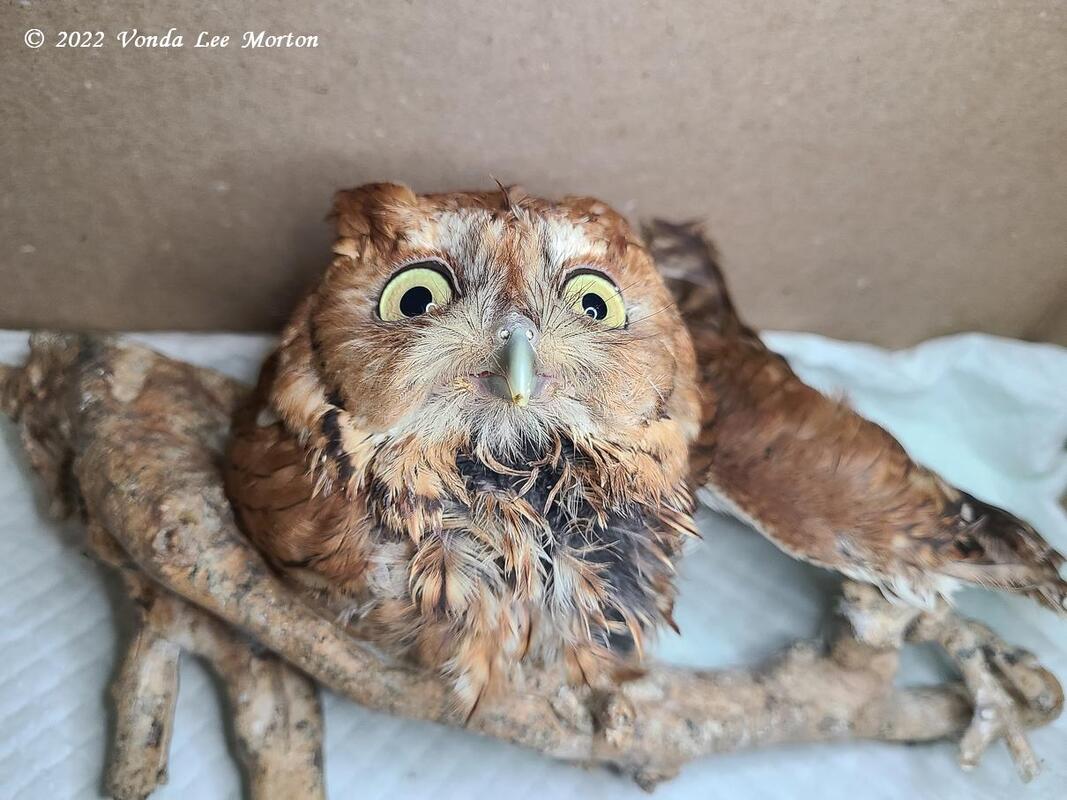
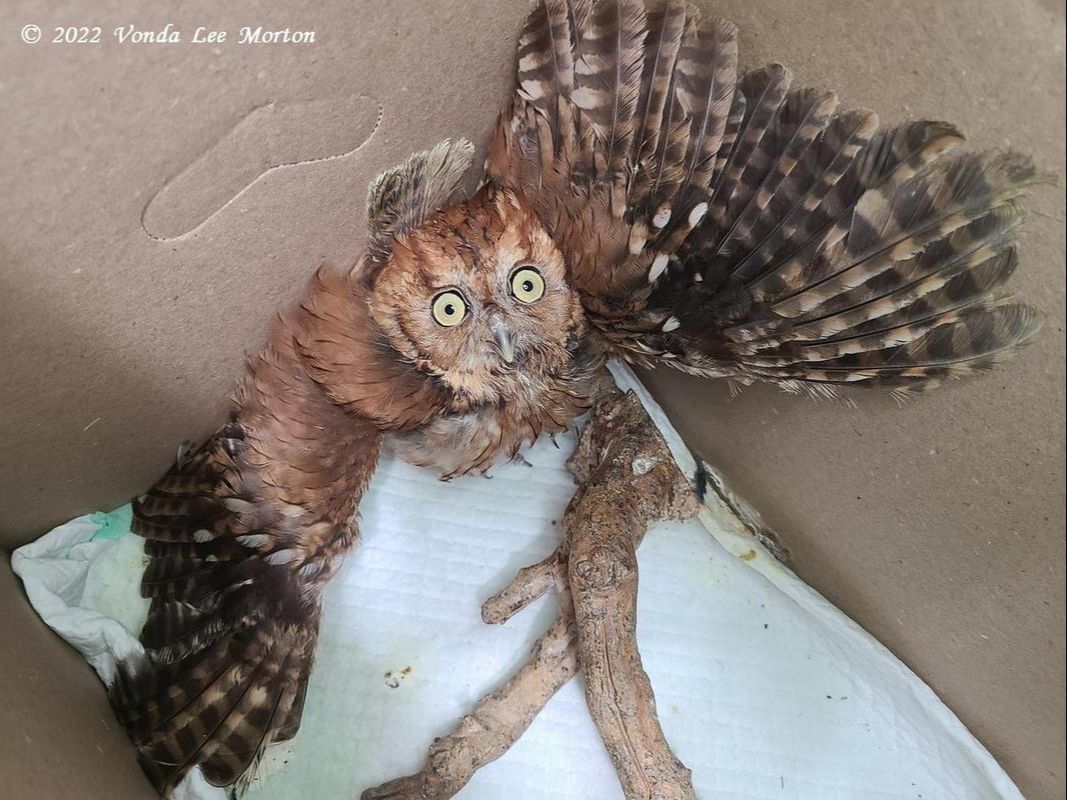
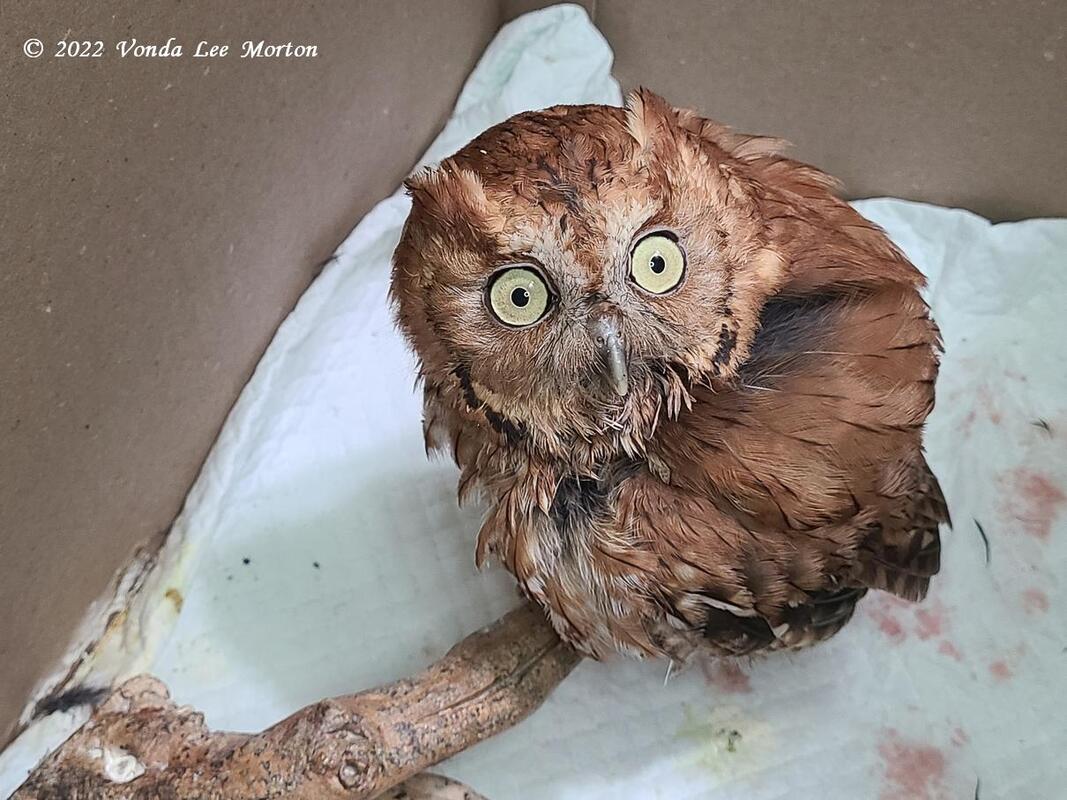
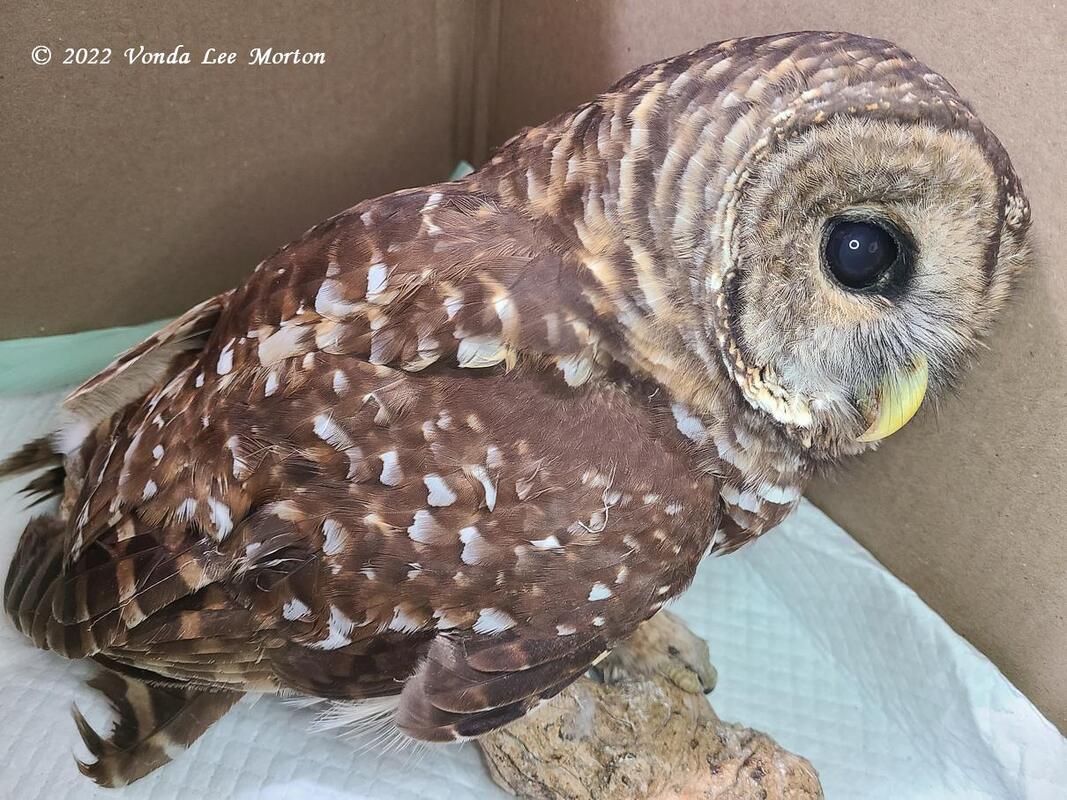
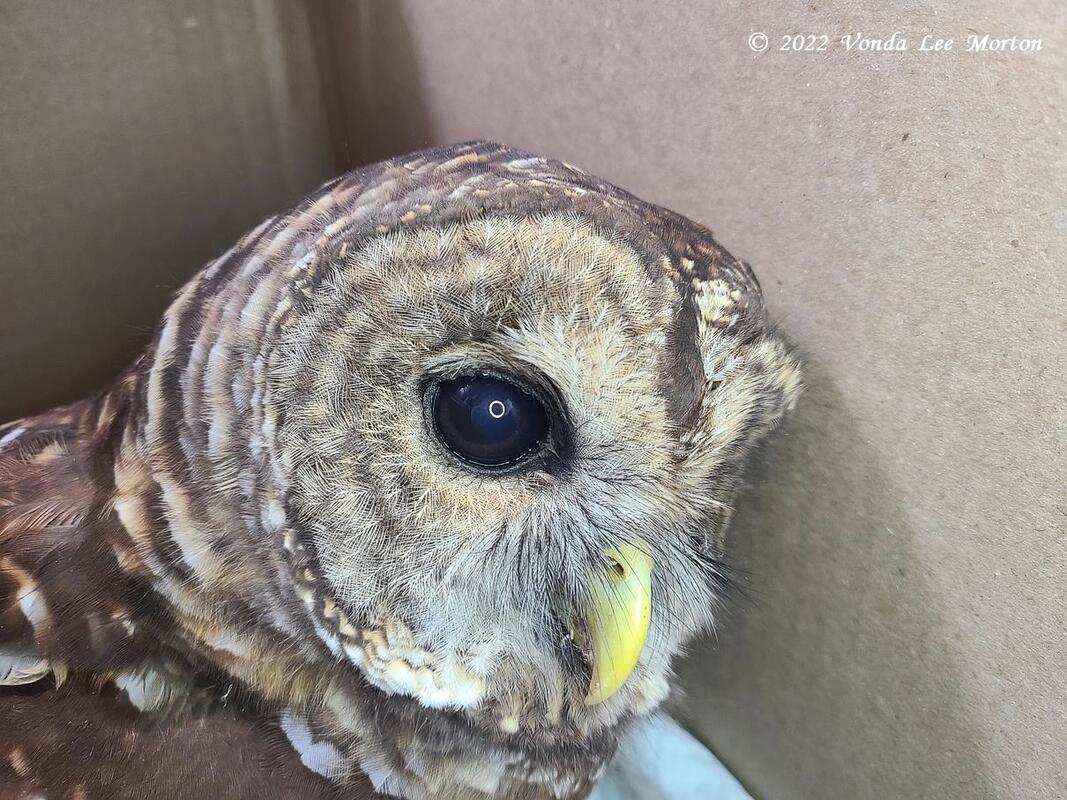
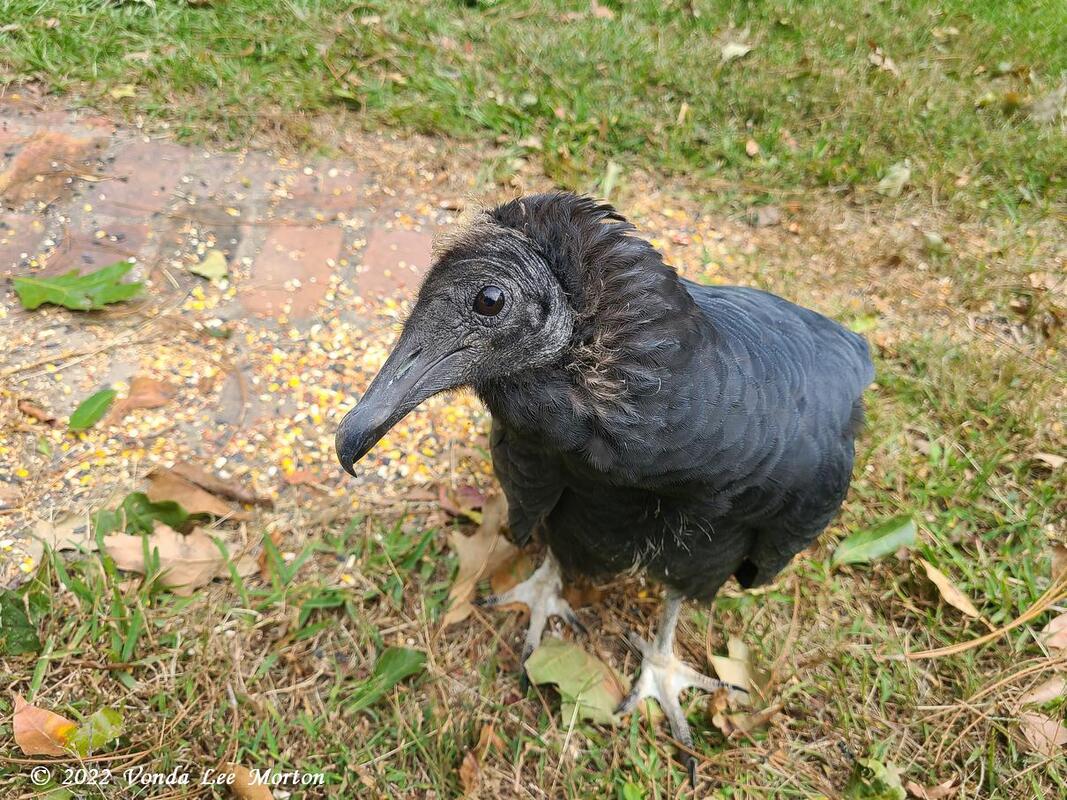
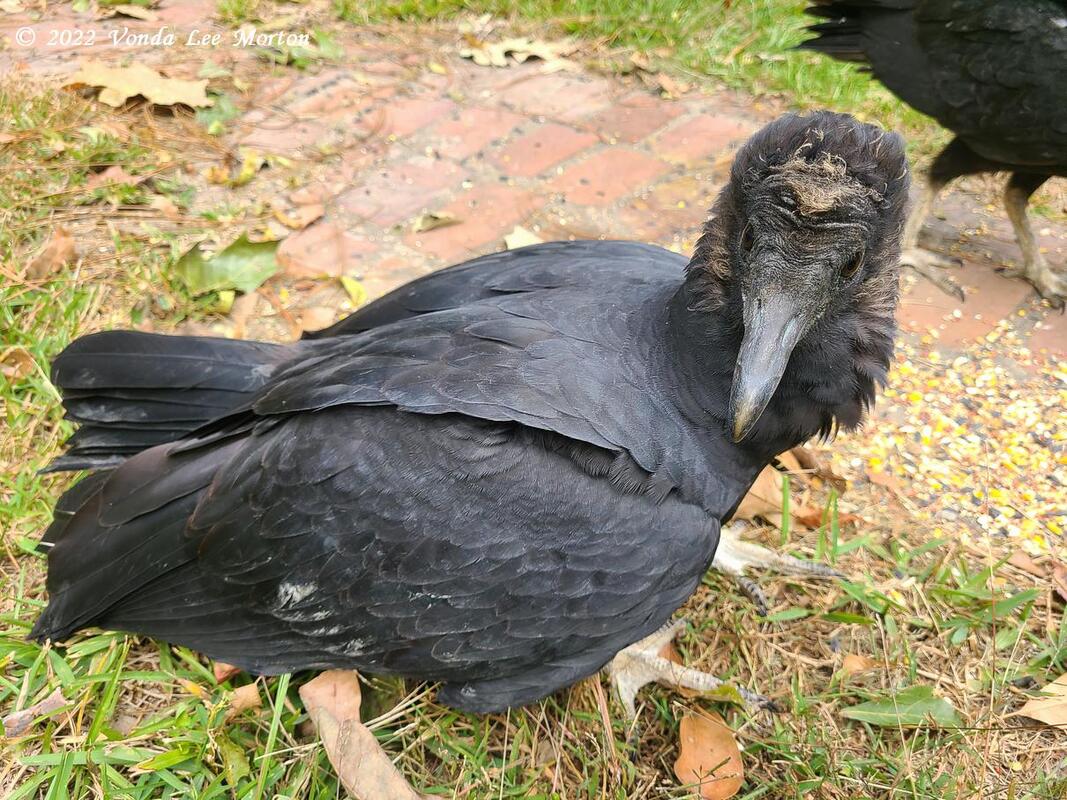
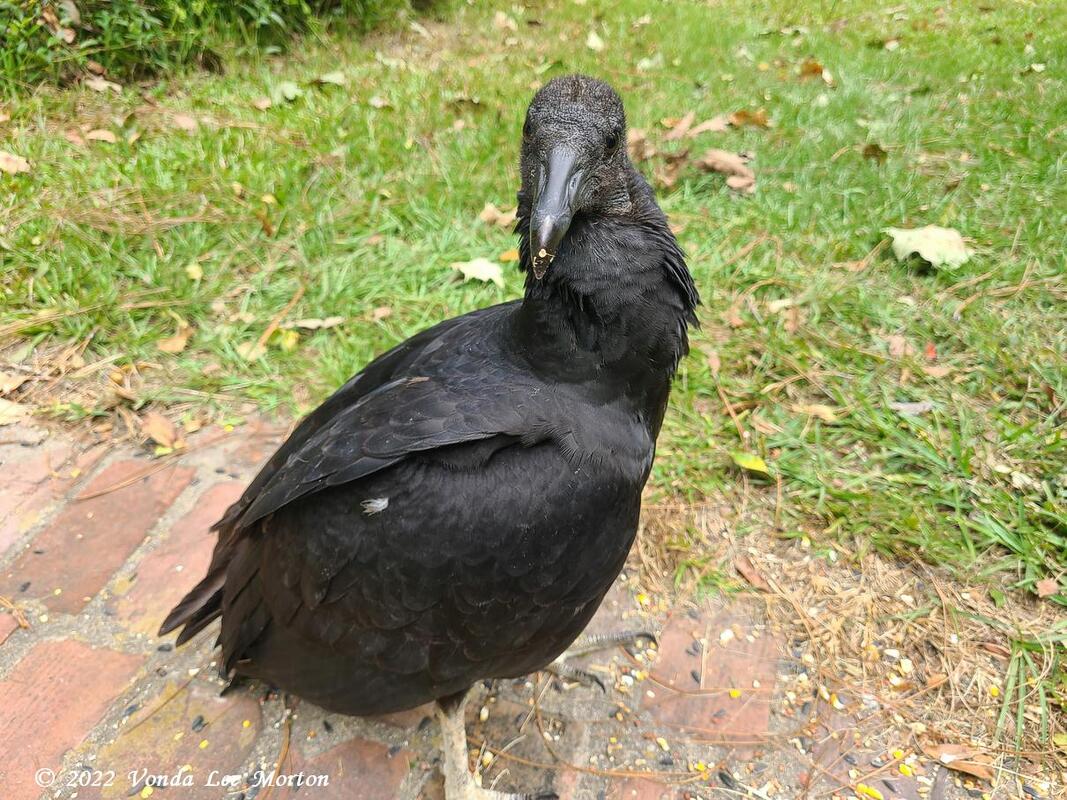
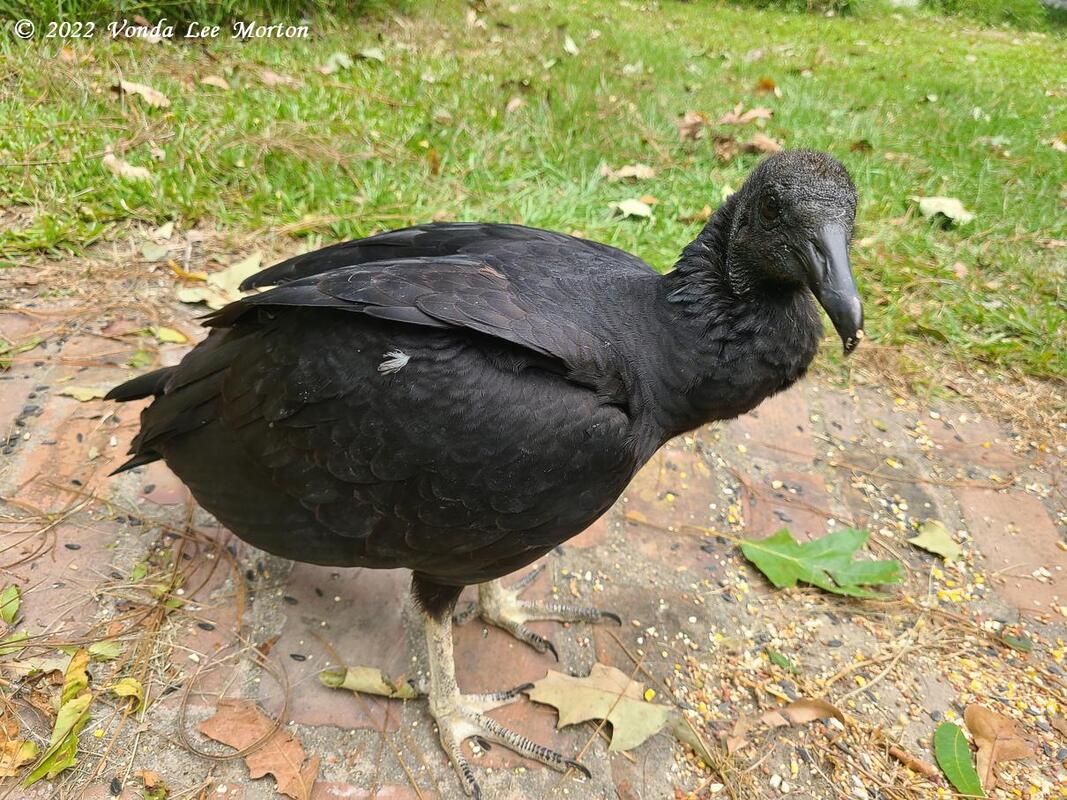
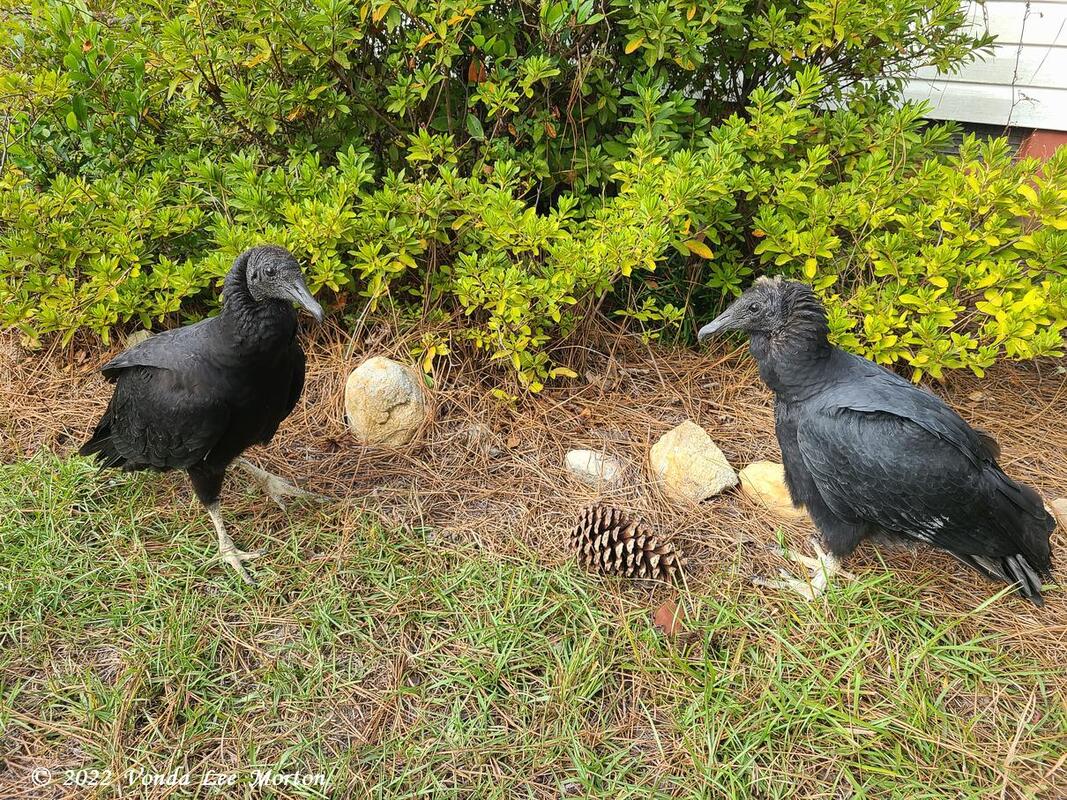
 RSS Feed
RSS Feed
